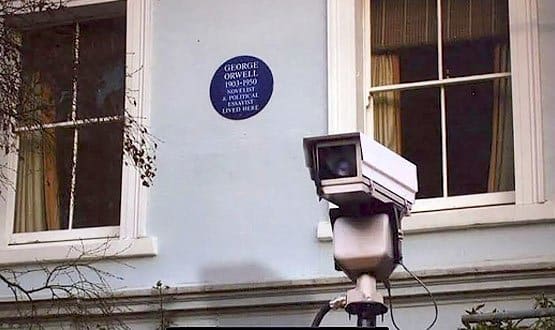Joe’s view: is panoramic
- 19 May 2014

I am once again on route to the Eastern Mediterranean. To Istanbul, to pick up the yacht I have hired for the next two weeks.
One of the best views in Istanbul is from the Topkapi Palace, which afforded the sultan who built it sweeping, panoramic views. From the palace, he could survey the city at a glance, looking south into Asia and north to Europe.
The sultan was a clever man, but he had a harem of 400 wives to entertain, a passion for horses and an empire to run.
Inevitably, some of the more tedious activities would need to be delegated. So he appointed a cabinet led by a grand vizier – a sort of prime minister – to oversee the running of the empire.
He built a grand room within the palace for the cabinet to meet and high in one wall he placed a shuttered window. From here, he could watch proceedings to make sure his government was doing the right thing.
Cleverly, the sultan constructed the window so that he could see and hear the grand vizier and ministers; but they could not see or hear him.
Consequently, his cabinet had to behave as if it was always under the watchful eye of the sultan; just in case he happened to be looking in. This may be the earliest example of covert surveillance using a visual technology (a fancy window).
Inspecting, regulating, inspecting again
Springing forward in history to the year 2000, I was one of the first wave of inspectors recruited by the then newly formed Commission for Health Improvement.
We undertook inspections that were remarkably similar in nature to the latest Care Quality Commission inspection regime; a careful examination of available data followed by rigorous inspection by a group of experts external to the trust.
This model seemed a reasonable way of attempting to oversee quality of clinical governance arrangements, but obviously was quite labour intensive. It quickly fell from favour and was eventually replaced by a more self assessment/ticky-box exercise under the newly formed CQC.
This model demonstrably failed: most notably in Mid Staffordshire. Hence the new Keogh inspired review process.
Keogh’s view from atop the NHS management pyramid is not unlike that of the sultan; he can see the smoke and flame of a major conflagration in the city and even beyond, but he is reliant on his lieutenants for more detail.
Or, rather, that was the case. There is a new power at work, one that the sultan understood; the power of the unseen observer.
The BBC TV programme Panorama has now twice exposed serious failures of care in two settings, firstly at Winterbourne View in Gloucestershire and now, more recently at The Old Deanery in Braintree.
The Sultan 3000 elevator pitch
The TV footage has been obtained by Panorama sending in undercover reporters posing as care assistants wearing covert video cameras to record the actual care being given.
A bold move from an information governance point of view; but I think that most would agree that move has been justified by the harrowing footage and criminal acts uncovered.
However, the uncomfortable viewing isn’t just carers behaving badly. It’s the conditions in which those carers are operating that bring out the worst in people who have financial problems and are overworked.
There is also the discomfort and guilt of the middle aged children of the elderly recipients of care. They have handed over the intimate care of their loved ones to a care home with glossy brochures and placement visits on which all seems well.
But how will you know that the care is as advertised? Well, that gives me an idea. Picture me standing before a crowd of venture capitalists, pitching the new business.
“Ladies and Gentlemen I am pleased to welcome you to the Topkapi Palace Care home, our first in Europe.
“At Topkapi Palace Care Homes we understand you want the best care for your loved one and we also know that you are busy and successful people.
“That’s why we have employed the Panorama team to regularly carry out covert surveillance of all our staff at least once a year to give you peace of mind.
“Further reassurance can be purchased for just £200. For this, you can purchase the Sultan 3000 remote observation unit, which will allow you to look in on your loved ones’ care from your smartphone. From anywhere in the world. 24/7.
Topkapi Palace Care homes Limited and the Sultan 3000. Complete peace of mind for you and your loved one.”
Do it ourselves?
Fanciful? Not from a technology point of view. I think the technology is already here. Our difficulty is likely to be more about overcoming information governance and privacy barriers.
George Orwell’s Big Brother has entered our culture and given surveillance a bad name. The sultan understood it could be used to improve behavior, and the deployment of CCTV in our city centres has undoubtedly reduced late night crime and made them safer places.
Maybe it is time we embraced the technology to help us look after our elderly relatives and took the responsibility for monitoring the quality of care that our elderly relatives receive back into our own hands.
If every carer had the power to randomly inspect the quality of the care being delivered then we’d have a powerful inspection regime. A regime that could never be achieved by the CQC, no matter how it shifts between inspection and regulation, or much money you throw at it.
One last flight of fancy. What if an electronic patient record supplier, that has already put the infrastructure into a hospital, could offer to bundle the Sultan 3000 remote carer viewing facility into its EPR, creating a self inspecting, publicly owned public health service?
You may say I’m a dreamer, but I’m not the only one…


Joe McDonald
Joe McDonald is a practising NHS consultant psychiatrist. Over the past five years he has been an NHS trust medical director and national clinical lead for IT at NHS Connecting for Health – a stint that included 18 months as medical director of the Lorenzo delivery team!
His experiences in the National Programme for IT in the NHS have left him with a passion for usability and "end user knowledge networks.” He is the founding chairman of the National Mental Health Informatics Network. Motto: we don't get fooled again. Follow him on twitter @CompareSoftware




